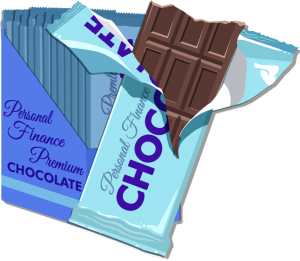1-08 Commodities
So far, we have talked about what the average “retail investor” thinks about when investing – bank accounts, stocks, bonds, and mutual funds. But the world is a big place, and there are bigger ways to invest! Besides the stock market, the biggest investment markets in the world are for commodities – raw materials that form the basis for the economy.
What Are Commodities?
Iron ore, copper, wheat, milk, soybeans, oranges, crude oil, cocoa, and more raw materials are commodities. You as an investor might not really want to buy a thousand bushels of cocoa and have it shipped to your house, but you might want to act as a middle-man. If you buy a contract for a thousand bushels of cocoa from a farmer, you can then sell that contract to a chocolate maker and earn a profit.
Commodity Trading
In the investing world, commodities usually trade as spot contracts or futures – which are outside the scope of this course. However, a regular investor can still invest in commodities through ETF funds, where the ETF creator does the hard work of managing the spot and futures contracts for you. This means that if you think the price of cocoa or oranges is about to go up (for example, if there was just a huge hurricane that wiped out orange trees in Florida, creating a shortage), you can get involved in this investment.
These are some of the most popular ETFs for various commodities:

| Commodity | ETF Ticker Symbol |
| Crude Oil | USO |
| Natural Gas | UNG |
| Copper | CPER |
| Corn | CORN |
| Soybeans | SOYB |
| Wheat | WEAT |
| Cocoa | NIB |
| Sugar | CANE |
| Lumber | WOOD |
| Cattle | COW |
Why Invest in Commodities?
Commodities are generally not long-term investments. You, as the investor, are just acting as a middle-man between the raw material manufacturer and the industry that uses these materials to produce finished goods. This means the prices fluctuate not based on the long-term profitability of a company’s business plan, but based on the current surplus (or shortage) of that commodity.
This does not mean commodity investing necessitates “Day Trading”, but it does require an investor to pay much closer attention to the news and the global economic trends than the other investment types we have covered so far.